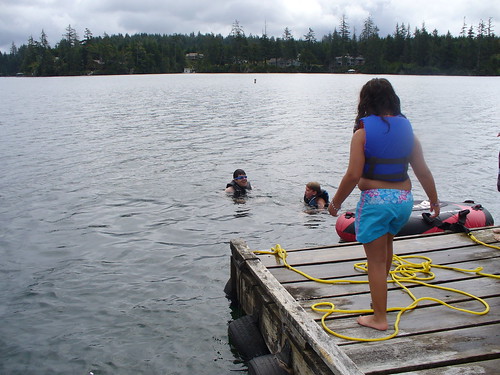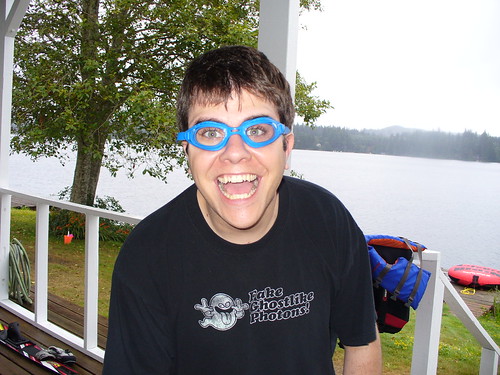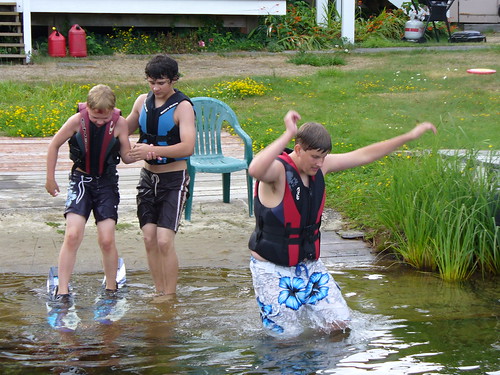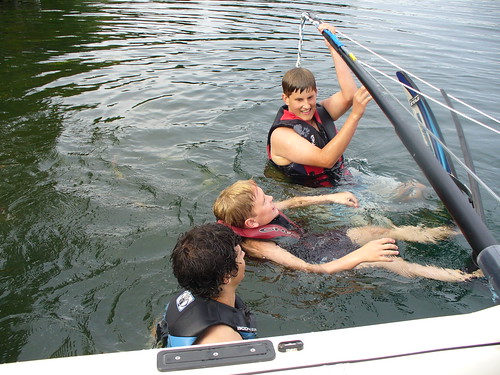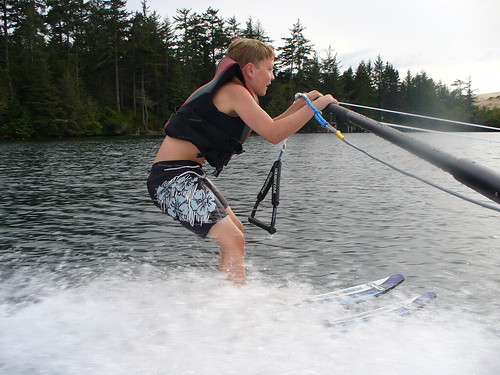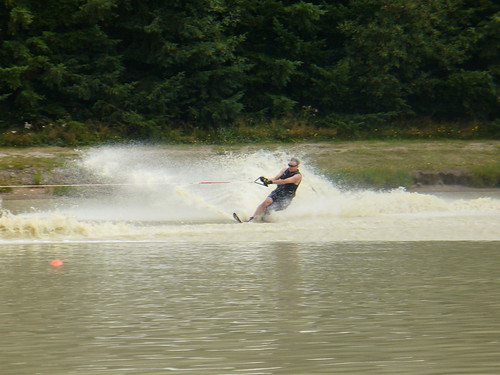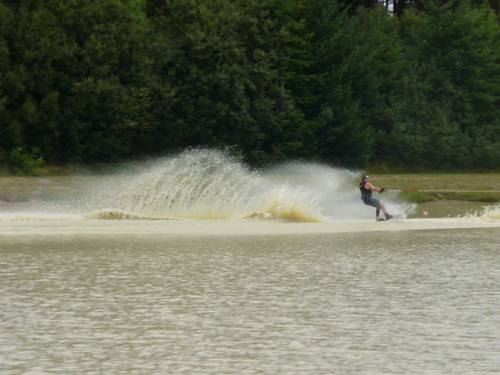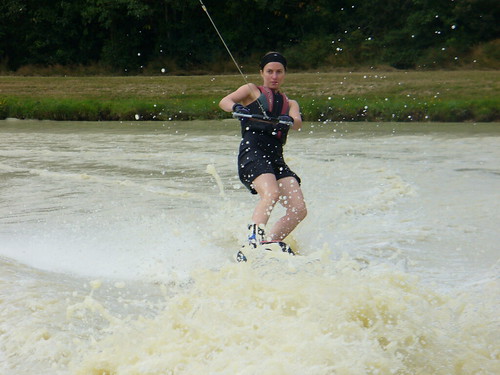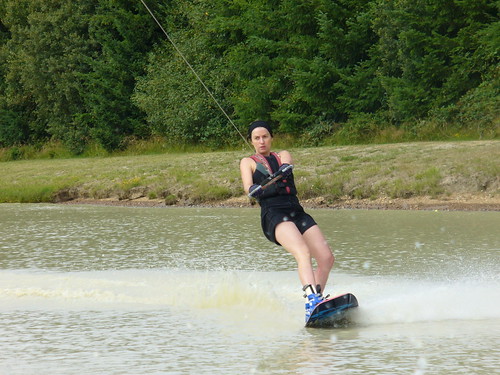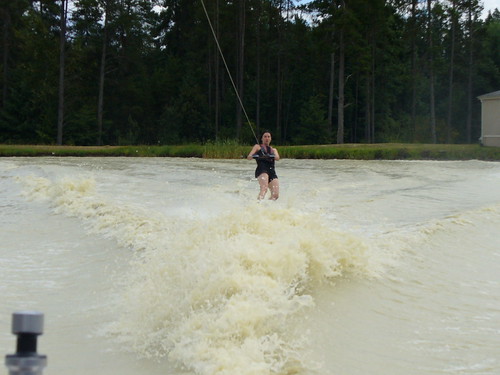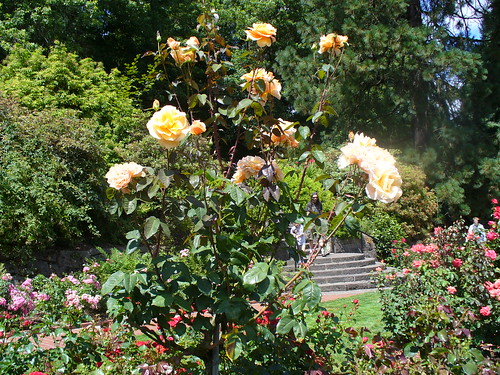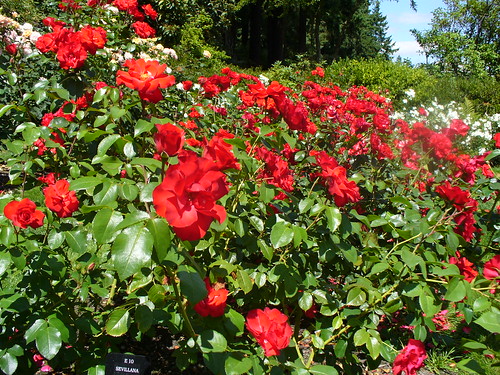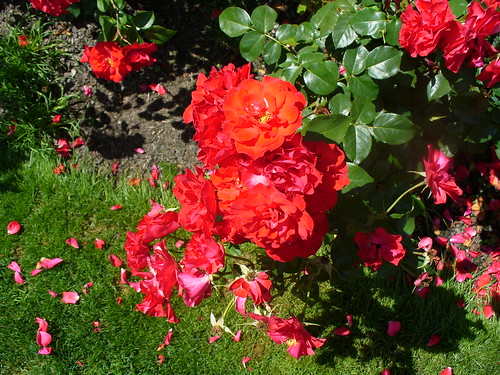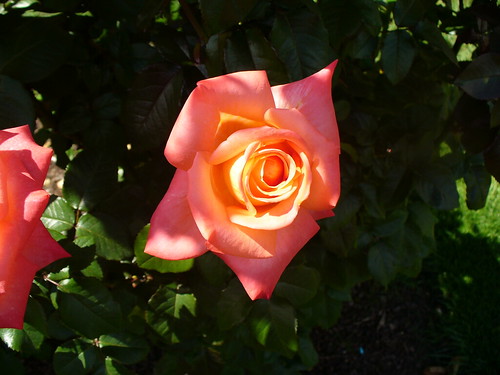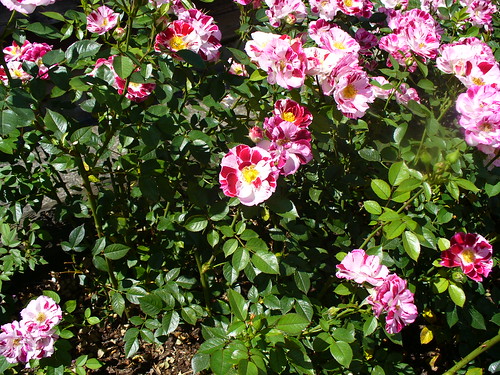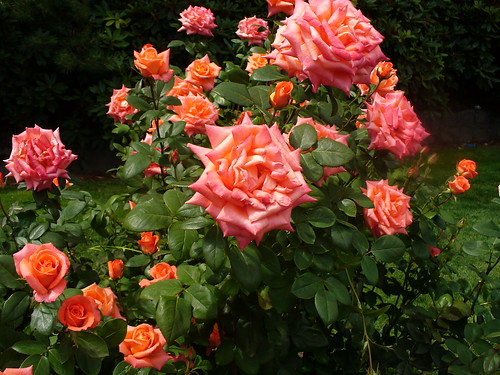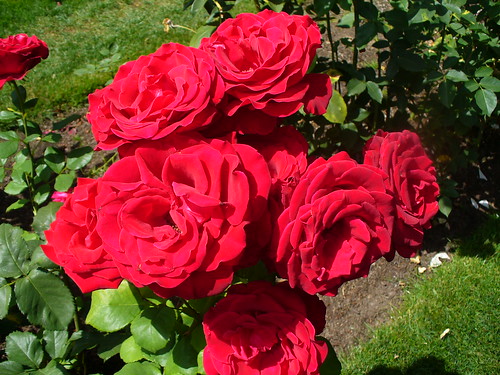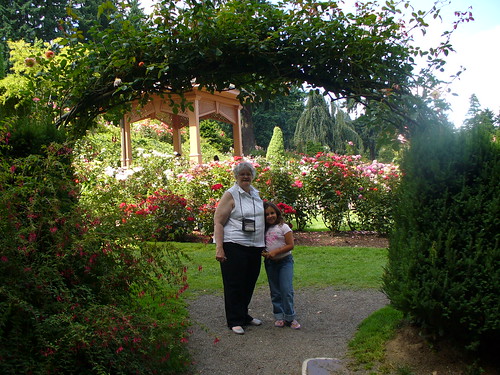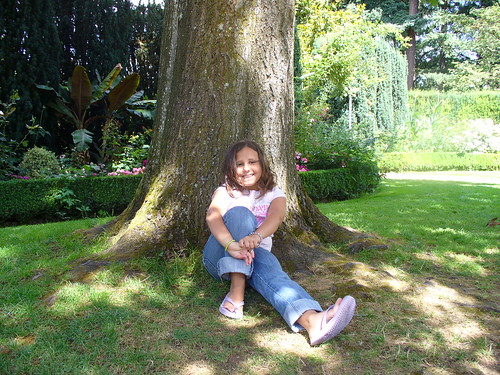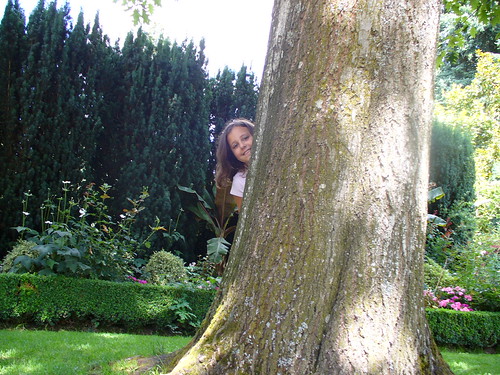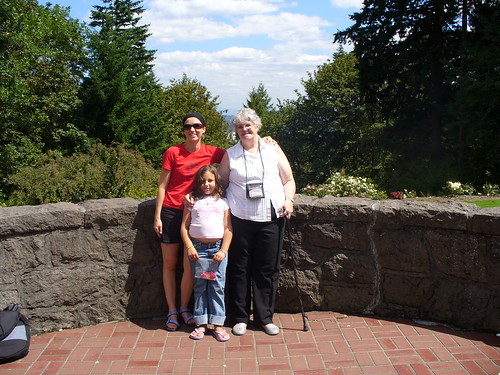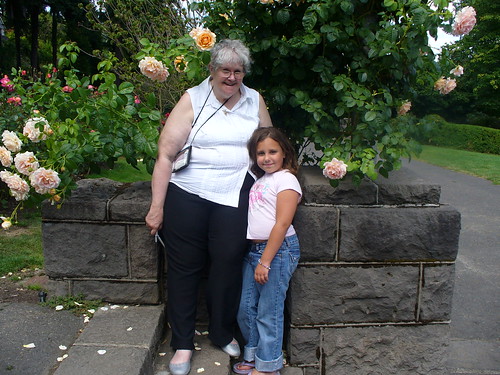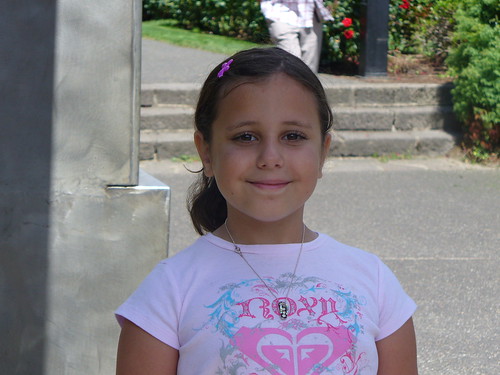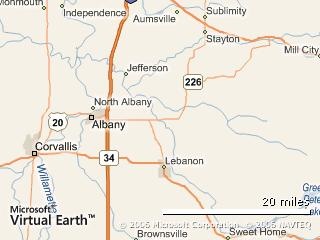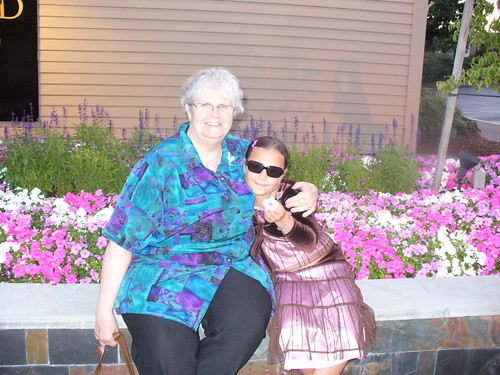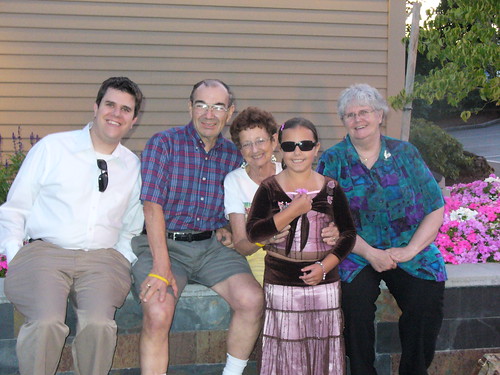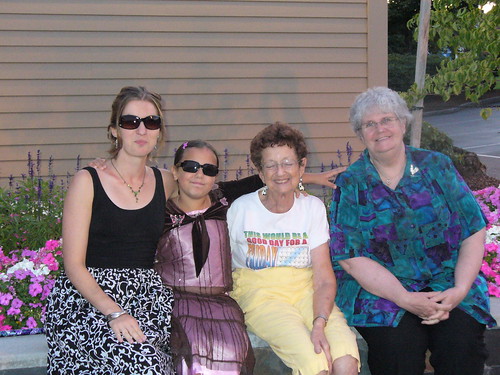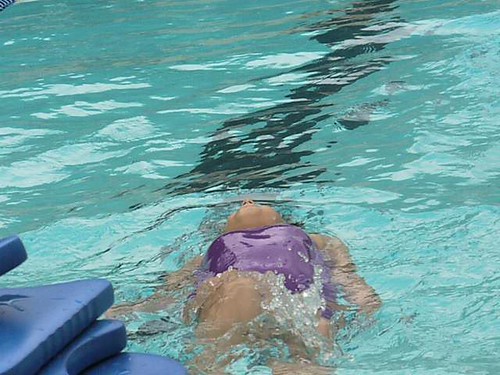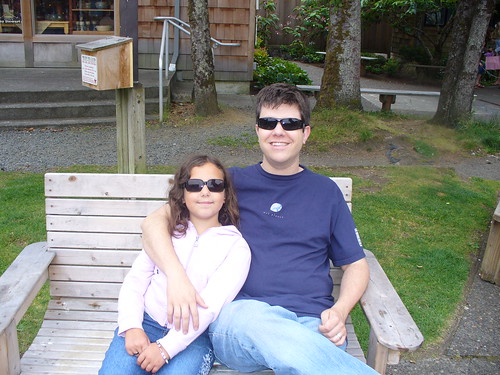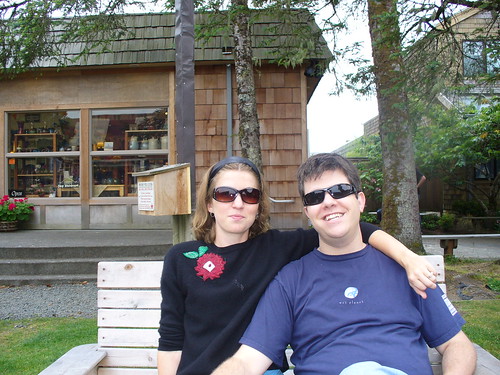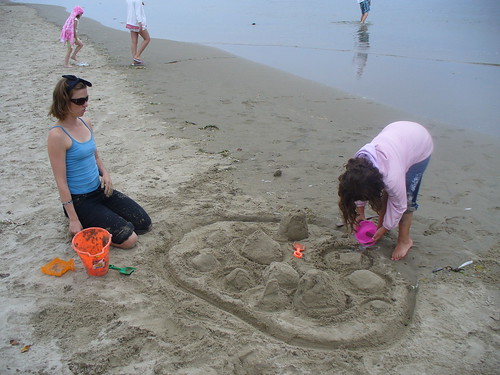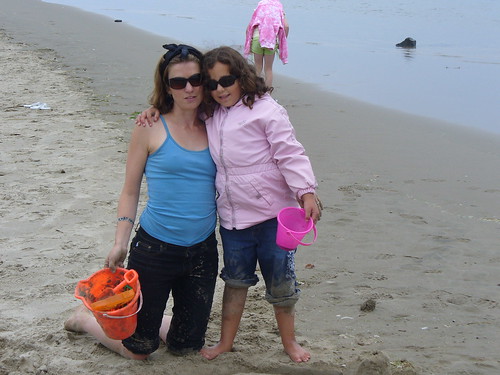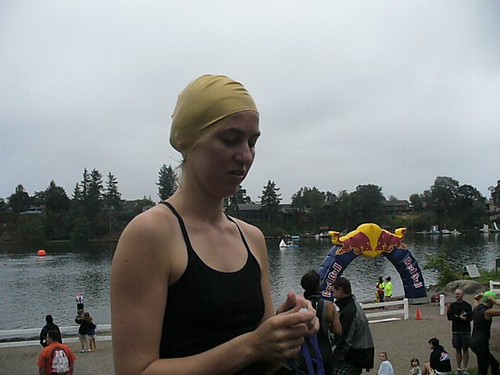The first night of camping in Astoria on Friday I had a little bit of trouble getting to sleep. The air matresses hadn't worked out (a problem we solved the next day when I bought one of these foot billows, which work great) so we were sleeping on the cold, hard ground. Andrew was snoring like a freight train. I was in a good place, though and I was kind of laying there in our tent with all four people in my family and thinking about this kind of camping vs. all of the RVs and trailers we were surrounded by.
Jen and I have been talking about buying a tent trailer lately. Prior to this year both of our biggest issues with the tent trailer idea was that it seemed like it was just one step away from the RV or trailer. Neither Jen or I really think of RVs or Trailers as really camping, but rather as something that old people do. But we both realized that if we did get a little tent trailer with a heater our camping season would be a lot longer and we wouldn't necessarily have to worry so much about getting all of our camping in during June, July, and August.
So as I was laying there on the cold hard ground I was reflecting on the fact that next year we'd probably have a tent trailer with a heater and instead of laying in a tent I'd be laying in the tent trailer - off the ground and hopefully with a heater. Maybe even with a sink or something.
I started to think about how the good thing about tent camping, even if you do it with the family and cooler out of your truck/car, (ie, not "backpacking" style) is that it makes you appreciate what the world is actually like versus the artificial construct of a world and society that we create for ourselves.
I enjoy my life and my house and my laptop & all that. At the same time, the earth is a lot more basic than that. Tent camping helps you understand that the earth is ground and trees, plants, minerals. I know a lot of serious campers who are also kind of environmentalists and laying there that night I couldn't help but think how important it is that I keep riding the MAX to work, teaching the kids how to recycle, trying to make sure that we do a much better job of limiting our water use.
But the irony of the whole thing is that I've never met a single camper or backpacker who didn't love a campfire. We all do - campfires are an inseparable part of camping, like Christmas trees at Christmas. And you have to think about what that's doing to the environment.
I also started thinking about how when you realize that you've forgotten something camping, like a spatula or whatever, the very first thing that you do is:
a) start thinking about what materials you have available to you to improvise the same function
b) take inventory of what other tools you have at your disposal that would suit the same purpose.
Basically the point is that it is in our DNA to act out our evolutionary role as tool makers. Either we make something, or find a use for something that is in excess of its original purpose to us. For me it's part of that same evolutionary hard-coding that makes building a campfire and indispensable part of camping.
The paradox is that even as we appreciate the world as it actually is, or at least more stripped of man's influence than what we typically interact with on a day-to-day basis, we exhibit our tool maker nature and it is this nature that causes us to slowly destroy the world that we are trying to connect with.


